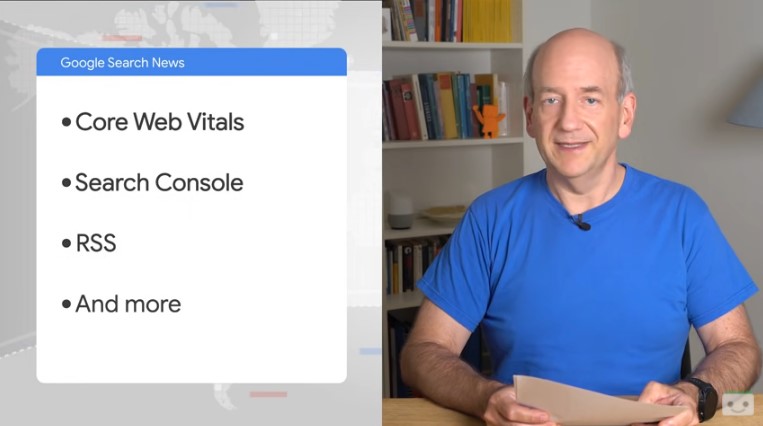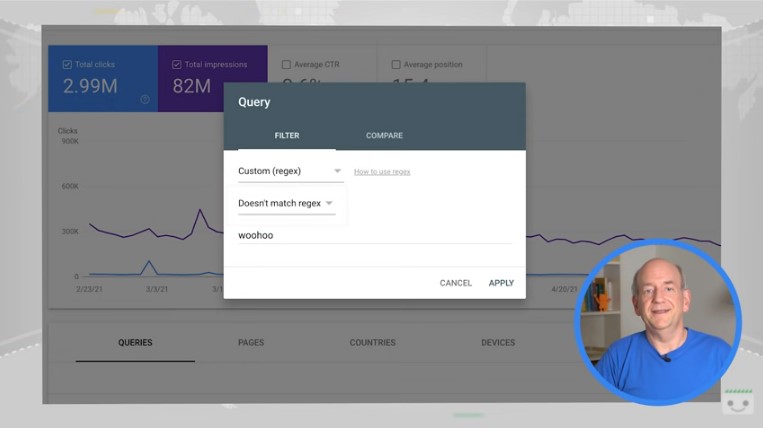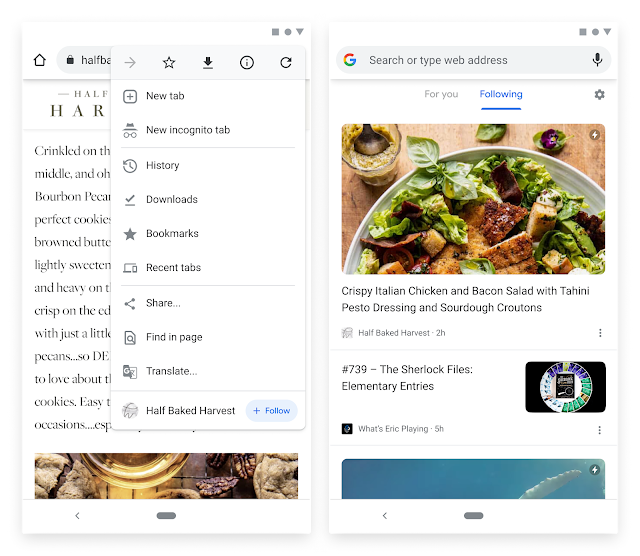News on algorithms and more: Google’s hectic June ’21
Not only the Page Experience Update, started in the middle of last month, but also the anti-spam algorithmic update and many other interventions perhaps less visible: the last few months of work on Google have been nothing short of eventful, and the now traditional date with the newscast hosted by John Mueller allows us to retrace everything that is changing, to keep up with the news.
Latest updates from Google
Two months after the previous summary, the Search Advocate of Big G is back again to take stock of everything that is relevant is changing in the search system, with the aim of providing useful and interesting ideas especially for website owners, publishers and SEO.
The summary of the new episode focuses on Core Web Vitals, Page Experience Update, Search Console, RSS and much more, and it starts right from what are the new ranking factors just officially introduced officially in the Search.
The Page experience ranking change
Starting from June 15, Google’s algorithms in fact take into account the (relatively) new parameters to classify pages: we are obviously talking about the Page Experience, which takes into account the user experience in web pages, including elements such as HTTPS and aspects related to speed and reactivity.
Mueller informs that “announced changes, such as those for the cumulative shift layout or CLS in short, are now active in all test tools and in the Search Console”, and also recalls that “Data in Search Console is based on data from the Chrome user experience report, which is aggregated over 28 days”.
The rollout of this ranking change started a few weeks ago, as mentioned, and should be “fully implemented for all Urls by the end of August this year”: a slower update than usual, which then “will not shift the search visibility of a site overnight”, but will show a gradual change over time.
This also means that “you can continue to work to improve things if your site is not doing as well as you would in terms of these metrics”.
The other updates of Google algorithms
The fluctuations in ranking in this period may also depend on the other two updates of Google’s algorithms that have started in recent days.
At the beginning of the month we had in fact the June 2021 Core Update, an update to the main algorithm slightly different from the previous ones both in terms of effects – rather bland – that for the division in two parts: it was in fact followed by the July 2021 Core Update, launched exactly on July 1, which in these days is completing the review of the criteria of quality of the results of the search engine.
Of different nature is the anti-spam algorithm, launched on June 24 (and not mentioned explicitly in the video), which instead aims to hit sites that publish content that is harmful to people’s reputation, using the situation to extort money from victims of unverified or slanderous claims.
Interventions on the Search Console
Also in this episode Mueller focuses on the changes underway for the Google Search Console, called “a fantastic way to find out how your website is going regarding Google Search”, because it allows you to get a lot of information such as “where and how people find your website or the presence of problems you might solve to make your site easier to find“.
The negative regex in Search Console
The latest update (still) concerns regex, a feature introduced in the past months and very well received by the community: for this, the GSC team “He expanded it and recently launched negative regex, which gives all the information that doesn’t match what you provided – and that’s a good thing!”.
For example, explains Mueller, you can use a regex to cover all variants of the brand name, and then see all the queries that don’t mention the name – “a way of dividing the branded search terms from those not branded“.
Here comes Search Console Insights
No less useful can be the Search Console Insights, a new platform that integrates the data of Search Console and Google Analytics, two tools that “give a fantastic amount of information, but it can be a bit too much if you don’t have the time to regularly understand what all this means or you don’t want to search the numbers in the data mountains of Search Console and Analytics”.
The tool “distills this information and gives site owners a simple and pleasant overview of what is happening regarding their site”: according to Mueller, who works as SEO or for an agency will find so a “clean way to help less experienced site owners see how your work has helped their site”.
Updates on RSS
The next focus is on RSS – acronym of RDF Site Summary, often reported as Really Simple Syndication or Rich Site Summary – name of a specially formatted XML file, or feed, commonly used for information dissemination.
Traditionally, RSS has been used to provide information on new blog posts and articles to subscribers and, while not a novelty in the literal sense, have recently been mentioned at the Google I/O, the great Google developer conference.
Google uses “RSS feeds similar to sitemap files to help us optimize our crawling and to make sure we don’t miss any updates on a website”, which remains unchanged. The novelty is that they will soon be used “in the context of a follow button in Chrome, which will allow users to receive updates from your website directly in their browsers”, independently of Search.
This Chrome experiment will first be visible in English in the US in Chrome on Android.
As Mueller explains, “if your website is already producing RSS feeds you may already be ready”; however, he points out, “these feeds should be linked by the head of your pages” and also “the title of your feed can be visible to users, so it is good practice to check that it is a useful representation of what the feed provides”.
To accelerate the delivery of updates, Google recommends using WebSub, which already supports Search.
MUM is not the end of the SEO
Google I/O has also received the announcement of MUM and other machine learning technologies; SEO “asked if this is the end of the SEO“, says Mueller, but the “shortest answer is no”.
In the vision of the Search Advocate (and of course of Big G), these “modern tools make work easier and will lead to the evolution of specific activities“: for example, he says, “there will be an inferior and reduced need to include in a content all possible synonyms or words that have an equal or similar meaning” to the main keyword.
Other two minor changes
In the queue, Mueller reports two other minor operations.
First of all, Google has just opened “a shared place for all content policies around Search”, which should make it easier to find any specific policy we are interested in.
In addition, it has been deactivated the appearance in generic search for multimedia results in Search Console, so as to make it slightly easier to focus on the bigger picture.
Google does not (yet) have all the answers
It does not come from the June episode, but it is still interesting the news reported by Danny Sullivan on The Keyword compared to the queries for which Google still has no answers – or considers them not sufficiently proven and reliable.
Already last year the search engine had introduced a box for queries to which it could not provide relevant answers, which now still evolves for “developing” issues: it is a warning that appears on the SERP to inform the user that “the topic is rapidly evolving and a number of sources have not yet been evaluated”, inviting him to “check later, when more information may be available from a wider range of sources”.
This feature concerns in particular “the latest news or emerging topics, when the first published information may not be the most reliable”, and intends to provide more context on the results so that the user can more safely evaluate the information found online – perhaps using the About This Result panel, which allows to read data on the source that help to determine its reliability or not.
These new notices will be launched initially in English in the United States and should expand (along with other related features) in the coming months in other languages and countries: as Sullivan points out, the goal of Google Search is to be “present with the most useful results we can provide“, but sometimes “the reliable information you’re looking for is not yet online” and with this “this additional context you can make a more informed decision about the sites you might want to visit and what results will be most useful for you”.






